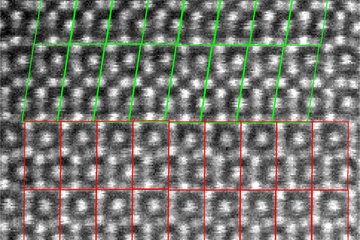All genres
1.
Journal Article
Electrophoretic Deposition of Gentamicin Into Titania Nanotubes Prevents Evidence of Infection in a Mouse Model of Periprosthetic Joint Infection. Journal of Orthopaedic Research (2025)
2.
Journal Article
Protein-metal interactions due to fretting corrosion at the taper junction of hip implants: An in vitro investigation using Raman spectroscopy. Acta Biomaterialia 189, pp. 621 - 632 (2024)
3.
Journal Article
Performance of Austenitic High-Nitrogen Steels under Gross Slip Fretting Corrosion in Bovine Serum. Journal of Functional Biomaterials 15, pp. 1 - 34 (2024)
4.
Journal Article
The gross slip fretting corrosion mechanisms of biomedical ceramic-metal couples. Biotribology 35-36, 100252 (2023)
5.
Journal Article
Electrophoretic deposition of gentamicin and chitosan into titanium nanotubes to target periprosthetic joint infection. Journal of Biomedical Materials Research Part B-Applied Biomaterials 111 (9), pp. 1697 - 1704 (2023)
6.
Journal Article
Topography rules the ultra-mild wear regime under boundary lubricated gross-slip fretting corrosion. WEAR 522, 204716 (2023)
7.
Journal Article
Reactive wear protection through strong and deformable oxide nanocomposite surfaces. Nature Communications 12 (1), 5518 (2021)
8.
Journal Article
On the Formation Mechanism of Column Damage Within Modular Taper Junctions. The Journal of Arthroplasty 36 (7), pp. 2603 - 2611.E2 (2021)
9.
Journal Article
Metallic Implants: Atomic Scale Origin of Metal Ion Release from Hip Implant Taper Junctions (Adv. Sci. 5/2020). Advanced Science 7 (5), 2070027 (2020)
10.
Journal Article
Atomic Scale Origin of Metal Ion Release from Hip Implant Taper Junctions. Advanced Science, 1903008 (2020)
11.
Talk
Microstructure and Ultra-Mild Wear of Metallic Materials. MSE 2022, Darmstadt, Germany (2022)
12.
Talk
Wear Scars do not represent Wear Loss – A Fretting Corrosion Example. 7th World Tribology Congress WTC 2022, Lyon, France (2022)
13.
Talk
Wear and Repassivation Rates of Orthopedic Metal Implants in Simulated Healthy and Inflammatory Synovial Fluids. World Tribology Congress 2022, Lyon, France (2022)
14.
Talk
Ultra-Mild Fretting Wear – A different angle. University of Leeds, School of Mechanical Engineering, Fretting Focus Group Seminar, Leeds, UK (2022)
15.
Poster
Biomaterials: Engineering the Future of Medicine. (2025)











